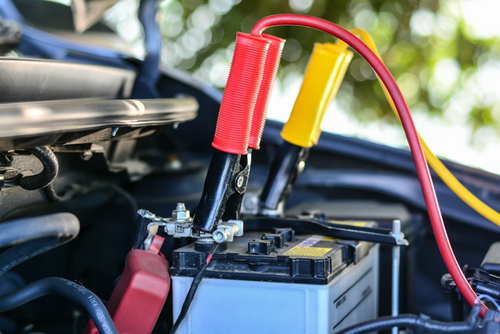4 Common Summer Car Issues and How to Prevent Them
July 18, 2019


Summer is a popular time to travel and enjoy the outdoors, but it can result in vehicular problems. Since you might use your car more frequently this season, it’s important that you learn how to prevent certain issues.
As a leading name in automotive repair in Burlington, NJ, among other nearby areas, Rob’s knows that no driver looks forward to dealing with car troubles. That’s why we decided to list four of the most common summer car problems, along with how you can avoid them.
Broken Drive Belt
The drive belt, also known as a serpentine belt, powers your engine’s accessories. The intense heat increases the chances that this piece breaks. Usually, drive belts last about 60,000-100,000 miles. If it’s been close to 100,000 miles since your last belt change, you should consider opting to replace it preemptively, so it doesn’t fail you at a bad time.
Fuel Vapor Leak
During the heat, fuel can turn to vapor, increasing the pressure in the fuel tank. This pressure releases through the system of hoses and is contained in a holding tank until your car’s engine uses it. When temperatures rise, more pressure builds up inside. The pressure-relieving system of hoses must work even harder to keep your car running properly. A leaking or cracked hose in your fuel line will allow the vaporized fuel to escape, resulting in low gas mileage. If this occurs, your “check engine” light will flash. To avoid this problem, bring your car in as soon as the light appears.
Failing Battery
Extremely low temperatures can weaken a car battery — most people already know this. What many are unaware of, however, is that extremely high temperatures can have the same effect because the heat makes your battery work harder. To avoid this, check the battery often, including all its pieces. A malfunction of one of these pieces can impede airflow and reduce its efficiency.
Furthermore, don’t neglect your vehicle’s engine crank. A slow engine crank could indicate that your battery is on its last legs. Consider buying a new battery to get you through the season.
Tire Blowout
The fluctuating temperature from night to day can cause under or over-inflation. Tires that aren’t adequately inflated are at higher risk to damage and wear, and, in turn, are more likely to cause a blowout.
Check your tire pressure, all four, at least once every other week during the summer. Be sure to compare the results with the recommended tire pressure found in your owner’s manual.
Whether you’re in need of a new car battery or drive belt, or you’re looking for a collision center near Philadelphia, PA, Rob’s is the go-to choice. Contact us today to learn more!
